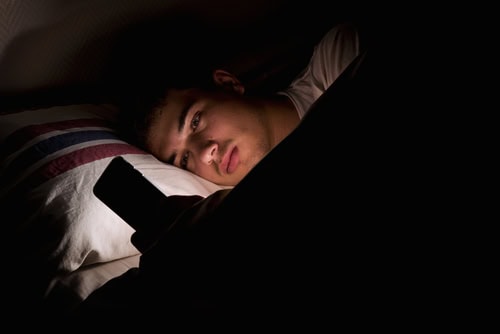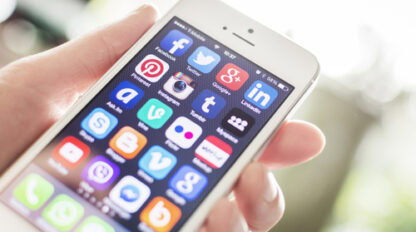Can Late Night Phone Usage Lead To Mood Disorders?

Despite strong suggestion from a variety of professionals, many of us are still guilty of committing a hefty crime against our mental health: we use our smartphones late at night. For too many of us, scrolling through the apps on our phones, our favorite social media platforms, checking emails and other interactions with a digital device is commonplace. Some of us even go so far as to lay in bed, in the dark, interacting with our phones.
Excessive phone usage has been linked to a variety of mental health issues, including depression, anxiety, and body image issues, which can lead to eating disorders. There is little argument left that our smart devices are causing us stress, which is in turn making us sick. Stress is the leading cause of inflammation on a molecular level, inspiring the development of diseases and disorder of the mind and the body.
The Lancet Psychiatry published one of the largest studies done on sleep by researchers at The University of Glasgow. Over 90,000 people were studied for their sleep patterns and behaviors. According to The Independent who reported on the study, “scrolling through your Instagram and Twitter feeds from the comfort of your pillow in the wee hours could increase the likelihood of developing a number of psychological problems such as depression, bipolar disorder and neuroticism.”
Let the Intent Clinical take the guesswork out of putting a treatment plan together. Our combined personal and professional experience empowers us to empower you with a private consultation and customized plan of action for getting the help you need. Call us today for information: 617 910-3940

